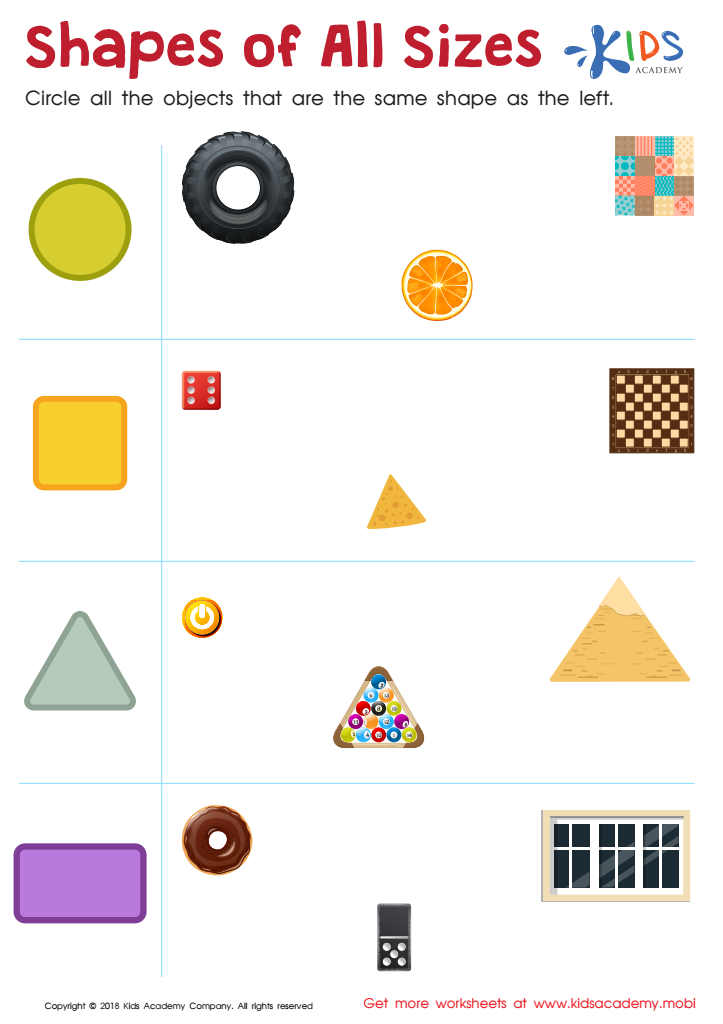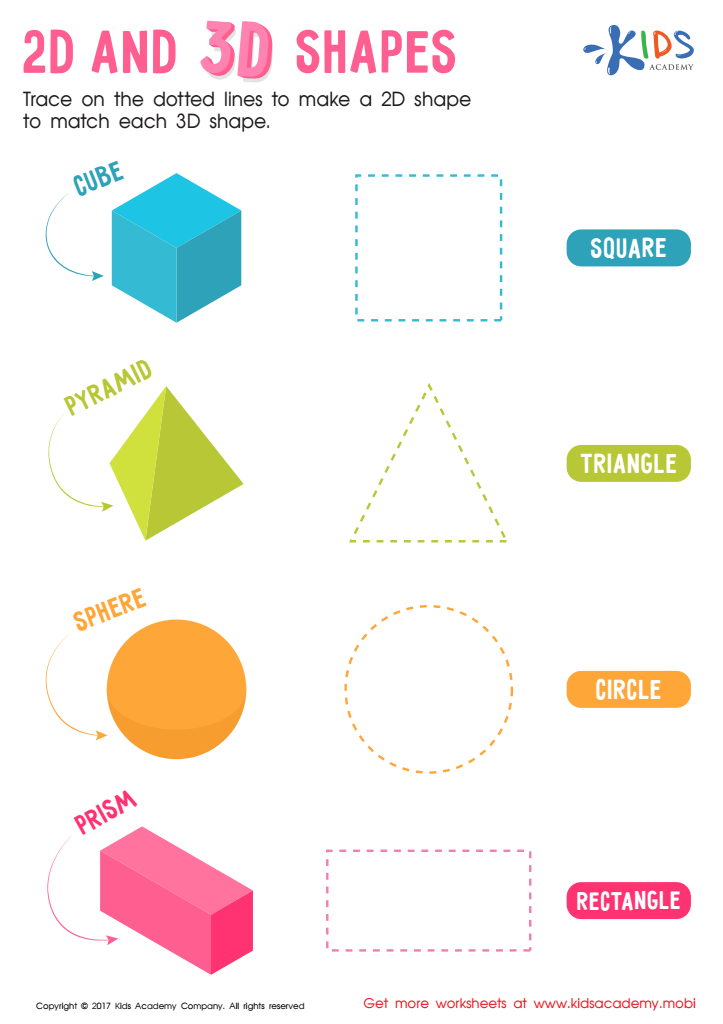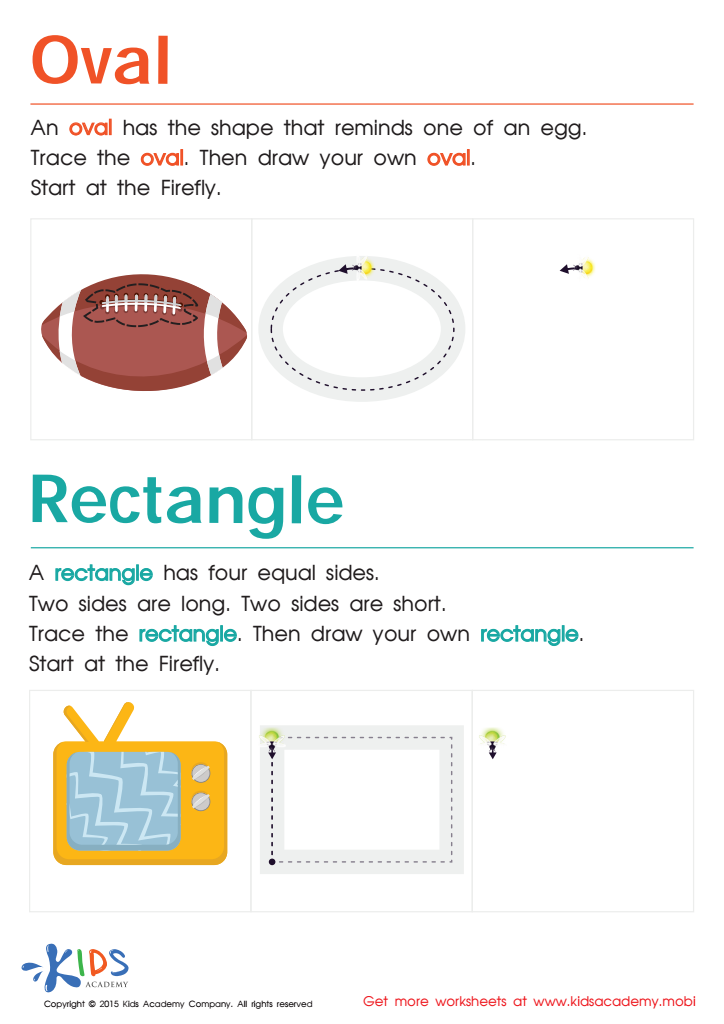Visual Perception Skills Geometry Worksheets for Ages 6-9
3 filtered results
-
From - To
Enhance your child's visual perception skills with our captivating Geometry Worksheets tailored for ages 6-9. These educational resources focus on recognizing and understanding shapes, patterns, and spatial relationships, crucial for athletic and academic success. Designed by educators, they blend fun activities with foundational geometry principles to foster critical thinking and fine motor skills. Perfect for young learners, our printable worksheets offer an engaging way to practice visual discrimination, memory, and attention to detail. Empower your child's learning journey and unlock their full potential with Kids Academy's expert-crafted geometry exercises. Download now and watch them flourish!


Shapes of All Sizes Worksheet


2D and 3D Shapes Worksheet


Easy Drawing of Ovals And Rectangles Worksheet
Visual perception skills in geometry play a crucial role in a child's cognitive and academic development, particularly between the ages of 6 to 9. These skills encompass the ability to understand, interpret, and recall visual information, which is essential for many daily tasks and learning processes.
At this pivotal age, children are rapidly developing their spatial awareness and the ability to recognize and manipulate shapes, patterns, and objects. Proficiency in visual perception supports their understanding of geometric concepts covered in school, such as identifying and comparing shapes, understanding symmetry, and grasping spatial relationships. These foundational skills are not only essential for math but are also integral to subjects like reading, writing, and science, where interpreting diagrams, maps, and patterns are often required.
Furthermore, strong visual perception skills are linked to improved hand-eye coordination, fine motor skills, and problem-solving abilities. These capacities contribute to better performance in physical activities, art, and technology use, promoting overall well-being and confidence.
Parents and teachers who prioritize and support the development of visual perception skills in geometry provide children with tools needed for holistic learning and development, encouraging a love for exploration and knowledge. Activities such as puzzles, drawing, and interactive games can be effective and engaging ways to enhance these skills, laying a solid foundation for academic success and practical life skills.
 Assign to My Students
Assign to My Students






























